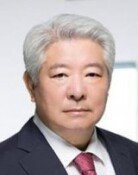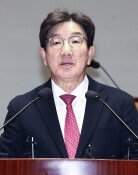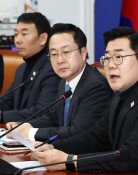Political uncertainty rekindles inflation worries
Political uncertainty rekindles inflation worries
Posted December. 17, 2024 07:43,
Updated December. 17, 2024 07:43
The rapid rise in the won-dollar exchange rate due to political turbulence is heightening fears of inflation. Earlier this year, agricultural product prices soared amid unusual climate events, causing significant distress. With the abrupt declaration of martial law ahead of the year's end, the exchange rate has surged again, reigniting worries about rising prices.
On December 9, the first weekday after the impeachment motion against President Yoon Suk-yeol failed to proceed, the won-dollar exchange rate closed at 1,437 won in the Seoul foreign exchange market, up 17.8 won from the previous trading session. While the rate slightly declined to the 1,430-won range following the impeachment motion’s approval on Monday, it remains at a high level.
The global prices of key food raw materials, such as coffee and cocoa, have been steadily climbing this year due to poor harvests caused by extreme weather conditions. Last month, the global food price index reached its highest point in 19 months. For South Korea, which heavily depends on imports for raw materials, the combination of surging exchange rates and rising raw material costs is adding significant inflationary pressure.
Consumer price inflation, which had remained in the 2% range through the summer, dipped to 1.6% in September, 1.3% in October, and 1.5% in November. However, the soaring exchange rate raises the likelihood of prices climbing again. Since raw material imports are typically contracted on a two-to-three-month cycle, the immediate impact may be limited, but if high exchange rates persist into next year, they will inevitably feed into consumer prices.
Prices for dining out have already increased across the board this year. According to the Korea Consumer Agency, the average price of popular dining-out items rose by 4% from January to November. Gimbap saw the largest increase, climbing 5.3% since the beginning of the year, while jajangmyeon and bibimbap prices rose by 5% each.
High inflation has been a central concern for the public throughout the year. Analysis of 6.23 million cases of social big data by the KPR Digital Communication Research Institute found that mentions of high inflation nearly doubled, from 448,124 in January to 862,136 in November. As prices rise and real household incomes decline, many families are tightening their belts, reducing unnecessary expenses, and focusing their spending on essentials—a shift toward recessionary consumption patterns.
The Consumer Sentiment Index (CCSI), which reflects public sentiment toward the domestic economy, showed the "future economic outlook" index falling to 74 in November, its lowest level in a year since November 2023. Concerns over stagflation—a combination of economic stagnation and rising inflation—are growing. Major institutions are forecasting South Korea’s economic growth rate for next year to be in the 1% range, suggesting that the pain of a recession combined with high inflation will only deepen.
To alleviate the burden of high inflation, which has plagued livelihoods throughout the year, it is imperative that the government and the National Assembly swiftly resolve political turmoil and focus on stabilizing prices. The Korea Federation of Micro Enterprises issued a statement on Sunday, urging political parties to cooperate across the aisle and devote themselves to revitalizing the economy. With stress levels already high from national concerns, the hope is that the new year will bring some relief from inflation-related worries.
Headline News
- Constitutional Court to hold first hearing on Pres. Yoon’s impeachment
- Han Dong-hoon steps down as People Power Party leader
- International hunt to find assets of former Syrian Pres. Assad
- Samsung Lions invest 10.2 billion won in free agent market
- Constitutional Court should resolve the nation’s uncertainty







